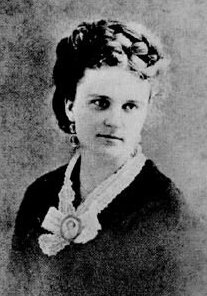
I first read Kate Chopin's The Awakening in my first year English forms of fiction class and loved it. I was told by my professor that it’s interesting to read the book at different stages in life, so I’ve been hoping to read it again soon (I just need to find the time!). That said, I figured this would be the perfect book to use for this week’s assignment; it’s surprisingly old enough to be fully available online at Project Gutenberg.
Using TAPoR, I popped the url into the box designed to find concordances and typed in the word love to see what would come up. I found that it came up 40 times, and that it mostly appeared in the second half of the book, less than I had expected, considering the book is only 128 pages. The protagonist (Edna) in the novel has an affair with a younger man, so I typed in affair next. To my surprise, it only came up four times. And in all cases, it referred to a different kind of affair, as in, “dinner was a very grand affair.” Interesting. Having read the book so long ago, maybe they referred to the affair as something else entirely. It’s nice that the generator at TAPoR gives you the context in which the word was written, allowing users to make distinctions like this. Even the word marriage only appears in the book nine times. This was surprising to me since Edna greatly struggles with her marriage to her husband.
All in all, the generator is very cool. It allows you to identify the frequency and patterns of when certain words appear in books. This could be useful for anyone, but I could really see this being useful to someone in an English literature class. It could help people analyze books more thoroughly when knowing when and where certain words appear, thus helping them identify key themes at certain points in the book. I could personally see this tool as being very helpful in researching a paper, whether it be for a history class or an English class. The reason why I say this is because I have a very bad habit of going through my sources, seeing a quote I like, then forgetting where I saw it, and then manically thumbing through every page of the book until I find it. If the book I was looking through was digitized and online at a place like Project Gutenberg, I could easily type in a unique word from the quote I was searching for and easily find the passage! Plus, I could even use it to find other related significant quotes. Yes, this tool could be very useful to us, though perhaps not until more of our recent sources have been digitized.




No comments:
Post a Comment